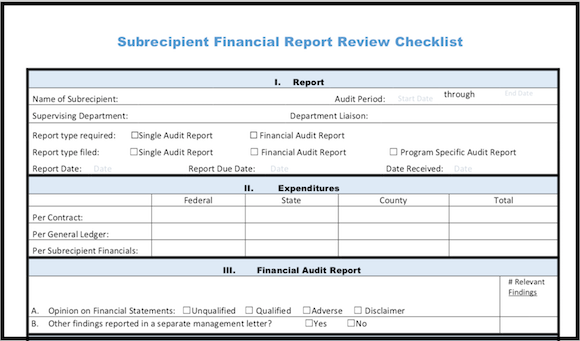|
A sin is a serious character flaw. A deadly sin is such a serious flaw that it could lead to the demise of the sinner. The “Seven Deadly Sins” is a list of the serious sins that has been used by religious groups throughout history to instruct followers about mankind’s tendencies to sin.
Most movie villains commit one of the deadly sins and they frequently tempt the hero/heroine to sin. The villain committing a deadly sin usually dies at the end of the movie. Although the hero/heroine frequently succumbs to the temptation to sin, he/she stops sinning by the end of the movie, is repentant, and does not die. Below is part 1 of my four-part series of the "Seven Deadly Sins in Controls Over Cash Handling"...
In my experience as a CPA serving local governments for 30 years, there are seven “deadly sins” related to cash collections. If the local government commits one of these sins, it is risking the ultimate penalty. The next several blog posts will describe each of the seven deadly sins of cash collections. If your government is currently sinning, repent and you can be saved.
The cash collections of several California governments have been embezzled in the last few years. In each case, the defrauded government committed one or more of the "seven deadly sins" of cash handling. Before I describe each of the seven deadly sins, I want to make a few observations about cash collections.
Cash is the most liquid asset. That means it will always be the target of thieves and embezzlers. There is no need for the thief to sell, negotiate or deposit cash; it is already in spendable form. Even though cash is defined as currency and coins, you should think of it as any physical object that you accept to satisfy an obligation. Accordingly, cash would include checks, coupons and discounts, such as resident discounts.
Cash has always been the ultimate form for paying obligations. This is still true today but is becoming less true. With increased use of credit/debit cards, ACH transactions and wire transfers, currency and coin are exchanged less often. Certain places don’t even accept cash anymore. For example, airlines frequently accept only credit/debit cards for onboard food and beverages. I even heard of a California city that recently refused to accept cash payment for business tax from a marijuana dispensary due to the safety issues involved in handling large amounts of cash. Cash collections are extremely common in local governments. When I assisted the city of Berkeley to write a cash handling training manual, they conducted a survey of the locations that collect cash. Shockingly, they found 92 city locations collected cash. That is virtually every counter in City Hall and every park, pool, tennis court, fire station and police station. Because cash collections are common and because they are handled by many employees in many different departments, it is critical that there be standardized practices that minimize the risk of loss. The best way to accomplish this standardization is to develop written procedures and provide training on these procedures to all cash collection employees. Because turnover can be high in cash collection positions, it is important to conduct this training periodically. When I was a young auditor assigned to audit a large drug store chain, they experienced a fraud by an assistant store manager counting cash register drawers and preparing the daily deposit. She would clip manufacturers’ coupons by the hundreds. For each cash drawer she counted, she added a few coupons and stole the same amount of cash. If you think that governments don’t use coupons, think again. I’ve seen them accepted as payment for recreation programs, golf course green fees, park admissions, cafeteria food, etc. Deadly Sin #1: Failure to Prepare the Initial Accounting Record
The first person to touch collected cash, either through the mail or over the counter, should prepare the initial accounting record. For cash collected over the counter, the initial accounting record is usually a receipt. These must be pre-numbered because, otherwise, employees can issue a receipt to the customer and later destroy it and steal the cash. For cash collected through the mail, a simple log of date, payee, and amount is acceptable. The initial accounting record should be separated from the cash at the earliest opportunity, with the cash being deposited to the bank and the initial accounting record sent to the accounting department. This minimizes the risk that cash will be stolen and the accounting records manipulated to hide the theft. The cash should not go with the initial accounting record to the accounting department because accountants are no less likely than operations employees to have sticky fingers.
I worked with a county that collected significant cash over the counter. One enterprising clerk would input the amount of cash received into the cash receipting system and print a draft copy of a receipt, which she would hand to the customer. She would then cancel the transaction without finalizing it. She then stole the cash collected and later wrote off the amount as uncollectible. In this case, the County believed they had a system that automatically prepared the initial accounting record, but the employee found a way around it. The next post, part 2 of this series, will cover the next two "deadly sins": Failure to Perform Complete and Timely Bank Reconciliations & Lack of Accountability for Cash Drawers. Read how to avoid them.
For more detailed guidance on how to avoid any of these "deadly sins," please contact me directly:
kharper@kevinharpercpa.com
For continued tips on how to avoid common cash handling pitfalls and other tips, please subscribe to our newsletter here (we will never spam you – promise!)
Comments
|
The Government Finance and Accounting BlogYour source for government finance insights, resources, and tools.
SEARCH BLOG:
Meet the AuthorKevin W. Harper is a certified public accountant in California. He has decades of audit and consulting experience, entirely in service to local governments. He is committed to helping government entities improve their internal operations and controls. List of free Tools & Resources
Click here to see our full list of resources (templates, checklists, Excel tools & more) – free for your agency to use. Blog Categories
All
Need a Consultation?Stay in Touch! |
Search Across Entire Site:
HELPFUL LINKS:
|
461 2nd Street, #302
San Francisco, CA 94107 (510) 593-5037 KHarper@kevinharpercpa.com |




 RSS Feed
RSS Feed